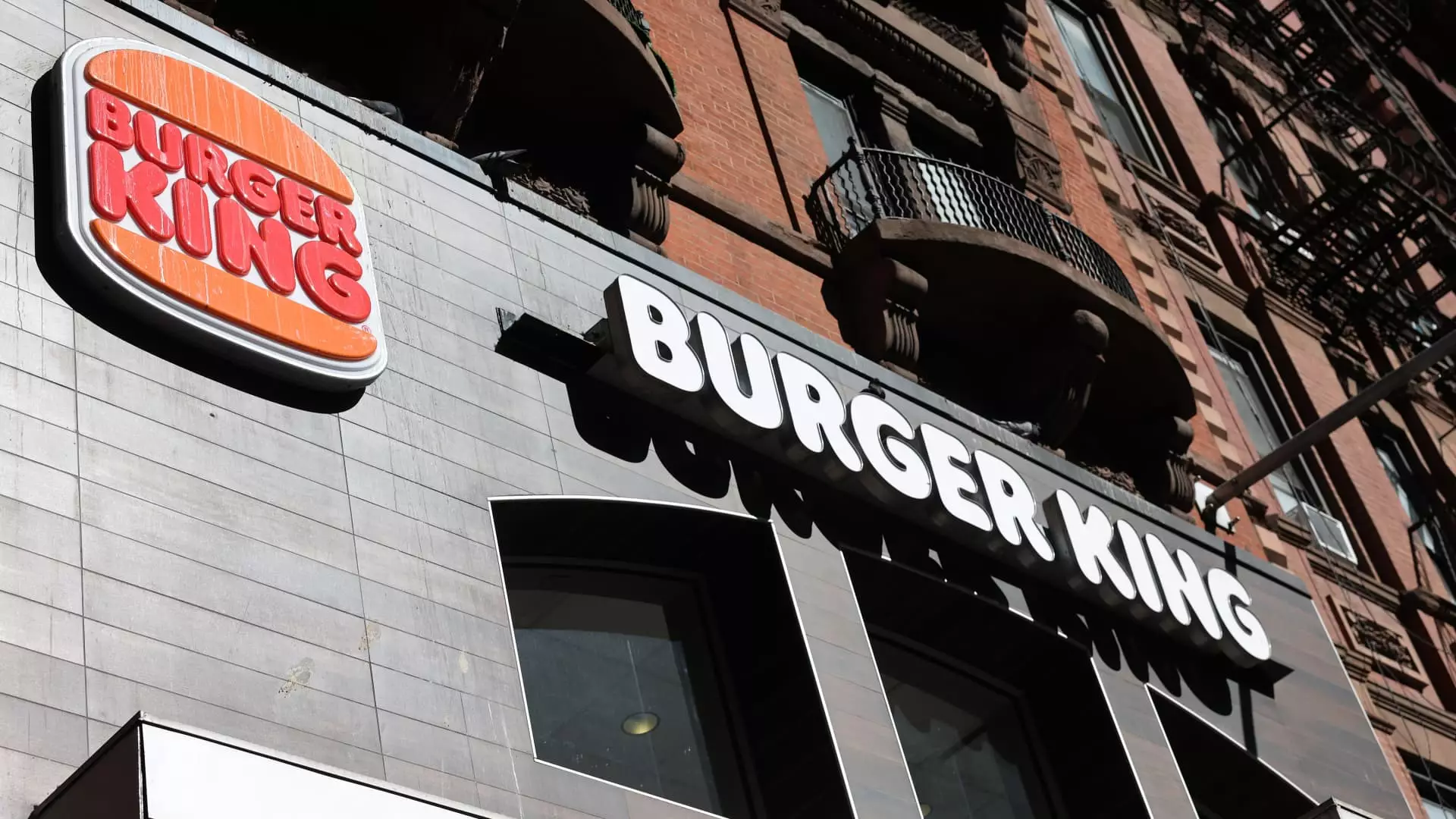Restaurant Brands International (RBI) recently reported earnings that starkly underwhelmed Wall Street’s expectations, sending shockwaves through the fast-food sector. With a notable decline in same-store sales across its flagship brands—Popeyes, Burger King, and Tim Hortons—this quarterly report feels less like a routine announcement and more like a clarion call for serious reflection about the company’s future. Analysts were looking for a brighter outlook, but the reality that additional 2% loss in share price in premarket trading might indicate investor dread about unmet growth potentials.
Financials: A Closer Look
Based on the latest figures, RBI’s earnings per share stood at a disappointing 75 cents, trailing the expected 78 cents. This 3-cent miss may seem negligible, but in the world of investment, even small variances can lead to significant market reactions. When you dig deeper, the reported net income also presents a stark contrast to a year ago—down from $230 million to $159 million—yet another illustration of the downward trend impacting the company. Indeed, while net sales saw a 21% increase buoyed by heightened contributions from Popeyes and Firehouse Subs, the overall mood remains overshadowed by the lackluster performance of its larger brands.
Brand-Specific Struggles
While total company growth appears encouraging, the reality is far bleaker when dissecting the individual brand performances. The self-proclaimed hamburger icon, Burger King, reported a staggering same-store sales dip of 1.3%, exacerbating fears about its ongoing struggle to reignite interest. Tim Hortons, a Canadian staple, did not fare much better, reporting a decline of 0.1%, far from the 1.4% anticipated growth. These declines point to more than market fluctuations; they indicate a cultural shift. Consumers are becoming increasingly discerning and demand more than the traditional burger-and-fries experience.
The Impact of Consumer Sentiment
The confluence of unfavorable weather and a more reserved consumer spending approach has created a challenging environment for RBI and its peers. It seems more relevant than ever to consider how societal behavior influences eating habits. As economic realities tighten for many, budget-conscious consumers may opt for healthier or home-cooked alternatives rather than fast food. This shift should act as a wake-up call, compelling RBI to reconsider not just its branding but also its comprehensive approach to customer engagement and innovation.
A Challenge to Adapt
As competitors flex their creative muscles with plant-based offerings and more health-conscious menus, the pressure is mounting on Restaurant Brands to retain relevance in an increasingly competitive marketplace. The struggles of the big three underline the necessity for bold rethinking. Adapting to customer concerns about health, sustainability, and ethical sourcing might just be the innovation RBI needs, yet its current strategy seems tethered to dated paradigms.
The enormity of these challenges emphasizes that Restaurant Brands International isn’t merely at a crossroads but on the verge of a potential crisis. If the company does not pivot swiftly toward contemporary consumer demands, it risks losing its grip on the market and, ultimately, its very identity.

